Background
Carl Sternheim was born William Adolph Carl Francke, on April 1, 1878, in Leipzig, Germany. He was the son of Jacob Sternheim, a banker, and Rosa Marie Flora (Francke) Sternheim.

1930
German actress Pamela Wedekind (daughter of Frank Wedekind) and the German writer Carl Sternheim after the ceremony in the registry office Brandenburgerstraße / Berlin.
1930
German actress Pamela Wedekind (daughter of Frank Wedekind) and the German writer Carl Sternheim after the ceremony in the registry office Brandenburgerstraße / Berlin.
Carl Sternheim
Carl Sternheim
Carl Sternheim
Carl Sternheim


















Carl Sternheim was born William Adolph Carl Francke, on April 1, 1878, in Leipzig, Germany. He was the son of Jacob Sternheim, a banker, and Rosa Marie Flora (Francke) Sternheim.
From 1897 to 1902, Sternheim attended Universities of Munich, Leipzig, Göttingen, and Berlin.
Sternheim decided to become a writer at an early age, but his writing was informed by a deep longing for preeminence. In his early career, however, he was supported almost entirely by his family, who published his plays at their own expense.
The decade between 1897 and 1907 was difficult for Sternheim: he wrote, but seemed to have felt strangled creatively. His second wife, Thea brought to the marriage a great deal of money. Through her inheritances, she enabled Sternheim to focus entirely on his writing while living in high style. Thea also introduced Sternheim to various influential figures, including the writer Franz Blei. Together, Stemheim and Blei founded a journal titled Hyperion, which Sternheim edited until 1912. Moreover, Thea and Blei encouraged Sternheim to read Moliere, who became the model for Sternheim’s satire.
The most important of the comedies Sternheim wrote between 1907 and 1924, were three of the plays collected as Aus dem bürgerlichen Heldenleben (From the Heroic Life of the Bourgeois).
During the period of his marriage to Thea, Sternheim produced numerous plays in this pattern, as well as a significant output of novels and stories. Following their divorce - which was reportedly precipitated by Sternheim’s record of infidelity - the playwright became increasingly reclusive, producing little and delighting in nothing. He died of pneumonia in 1942.
Carl Sternheim is best known for his satiric, difficult dramas of early twentieth-century Germany. In them, Sternheim often criticizes the German middle-class. He created a series of topical satiric comedies, informed by an uncompromising prophetic vision of Europe before the Great War, economically and intricately structured, and presented in a language that at once captures the idioms of the time and exposes the mentality of those who speak them.
His best plays have not only endured but seem to have improved with years. No other German playwright of his generation can match his accomplishments.
Sternheim's father was a wealthy Jewish banker, while his mother had been raised as a Lutheran, and the disparity of their religious backgrounds seems to have affected Sternheim. Throughout his life, he struggled with his confused religious identity, first converting to Protestantism in 1897, then marrying his first wife as a Catholic in 1900.
Quotes from others about the person
"Sternheim craved personal recognition and influence that would enable him to move in the circles of important men. Finally, he yearned for erotic power and a career of sexual conquest on the order of Don Juan’s. These fantasies, more in their sinister than in their pleasurable implications, form the groundwork for many of his plays."
In 1900, Sternheim married Eugenie Hauth, but they divorced in 1906. In 1907, he married Thea Bauer, but their marriage also ended a divorce in 1927, and Carl married Pamela Wedekind in 1930. By that time Sternheim was suffering from syphilis. For a long time Pamela didn't know about his disease. In 1934, the couple separated. He left for Berlin where his illness grew worse. From 1934 onward he lived with his housekeeper Henriette Carbonara (1897-1959) in Brussels.
Sternheim had one child from his first marriage, Carlhans, and two children from the second, Klaus and Dorothea.
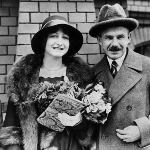
December 12, 1906 - April 9, 1986
Anna Naema Pamela Kadega Wedekind was a German actress, singer and translator. She was the daughter of playwright Frank Wedekind and actress Tilly Newes.
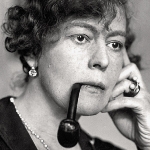
8 March 1879 - 4 June 1958
Princess Mechtilde Lichnowsky, originally Mechtilde Christiane Marie Gräfin von und zu Arco-Zinneberg, later Mechtilde Peto was a German author, married to Karl Max, Fürst von Lichnowsky, 6th Prince and 8th Count Lichnowsky (1860–1928) who succeeded his father in 1901, and served as Imperial German Ambassador to the Court of St. James's, 1912-1914.
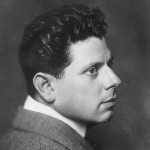
September 9, 1873 – October 30, 1943
Max Reinhardt was an Austrian-born theatre and film director, intendant, and theatrical producer.
July 24, 1864 – March 9, 1918
Benjamin Franklin Wedekind, usually known as Frank Wedekind, was a German playwright. His work, which often criticizes bourgeois attitudes (particularly towards sex), is considered to anticipate expressionism and was influential in the development of epic theatre.
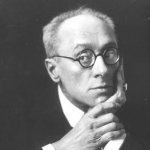
January 18, 1871, Vienna – July 10, 1942
Franz Blei was an essayist, playwright and translator. He was also noted as a bibliophile, a critic, an editor in chief and publisher, and a fine wit in conversation.
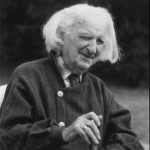
22 March 1906 – 2 July 2011
Marcel Hastir was an artist, theosophist and member of the Belgian Resistance during World War II.
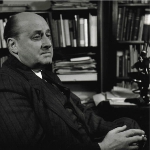
2 May 1886 – 7 July 1956
Gottfried Benn was a German poet, essayist, and physician. He was nominated for the Nobel Prize in Literature five times.
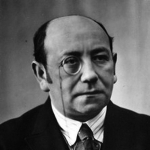
26 April 1885 – 5 July 1940
Carl Einstein, born Karl Einstein, was an influential German Jewish writer, art historian, anarchist and critic.
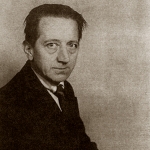
20 November 1879 – 26 May 1954
Franz Pfemfert was a German journalist, editor of Die Aktion, literary critic, politician and portrait photographer. Pfemfert occasionally wrote under the pseudonym U. Gaday.
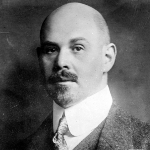
29 September 1867 – 24 June 1922
Walther Rathenau was a German industrialist, writer and liberal politician.
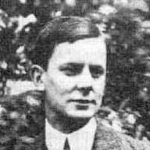
11 August 1883 — 30 October 1914
Ernst Stadler was a German Expressionist poet.
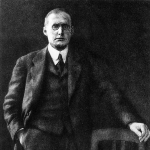
1851–1911
Hugo von Tschudi was an art historian and museum curator. He was director of the Nationalgalerie in Berlin (1896–1909) where he acquired many important Impressionist works.
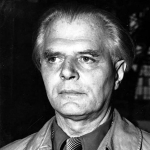
10 May 1885 – 28 November 1970
Fritz von Unruh was a German expressionist dramatist, poet, and novelist.
